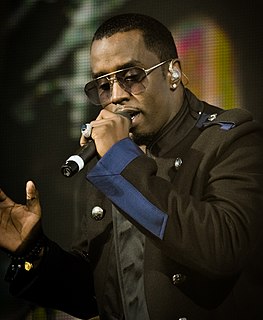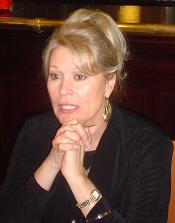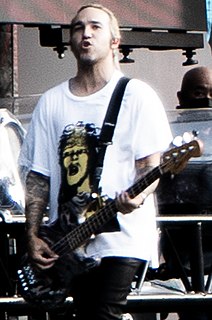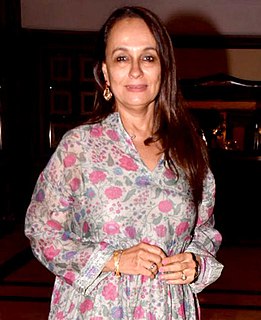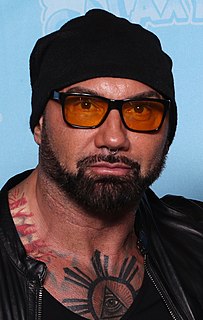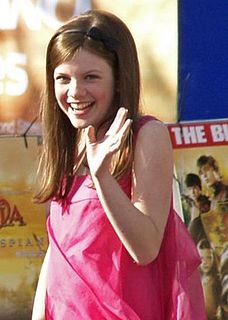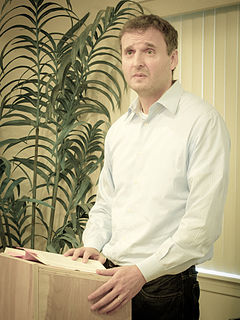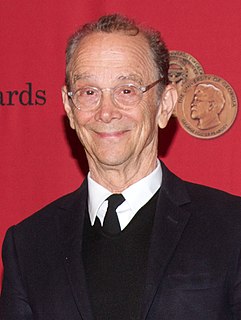A Quote by James Cromwell
For my entire career, I wanted to be a director. When I was in the theater, it was very difficult to get directing jobs, and I fell into the acting by default. I got in the habit of accepting whatever came my way. Not things that I disagreed with, though. It's not like I had aspirations - well, I did have aspirations to play Hamlet, which I ended up doing.
Related Quotes
For most people, it is enough for the world to know that they aspire. The world does not ask what their aspirations are, trusting that those aspirations are for the best and greatest things. But with regard to the Negroes in America, there is a feeling that their aspirations in some way are not consistent with the great ideals.
One of the first roles I had on stage was with a brilliant director in a brilliant play with a brilliant cast, but I just couldn't find my way into the heart of the character. I found myself straining a lot. When it started. I felt lost. That was the Eugène Ionesco play Rhinoceros. I don't think I was prepared for that. I don't think I had the full tool kit to do it justice. It's a very difficult play, it's an extraordinarily difficult part, and I never felt I really got it right. Far from it. To a degree, Hamlet was the same.
I've been so fortunate throughout my career, when I was doing theater, more theater than anything else, and when I was doing films that I got a chance just to do a broad range of things. In fact, a lot of my choices that I made were about that very thing. Every project that I had an opportunity to do or chose to do, I wanted it to be different from the last thing I did, and I think that's why I have a good, you know, I had kind of a diverse kind of résumé. I'm really - it's what I set out to do as an actor originally.
Aspirations must be pure and free of selfishness. Arising from the depths of the soul, aspirations are spiritual demands penetrating all of a human life and making it possible for a person to die for their sake. A person without aspirations is like a ship without a rudder or a horse without a bridle. Aspirations give consistent order to life.
What people generally tell you is, "We'll all agree," and then once you sign, they expect to get their own way. I think it was a bit of a surprise that I was still very headstrong even after signing. I wasn't so happy to get a deal that I would agree to anything. In fact, I disagreed on most things and got my way on most things, which I think was to all of our benefit. But they wanted the record to come out, and I wanted the record to come out, so we had to work together.
I'm very glad I've got a make-up artist. I have trouble going to school when I've got bad spots and things like that so I still don't understand how I got up in front of a camera and did it. I almost had a moment of madness every time I did that. It's difficult and it's scary and you hope that people won't be looking at your flaws, especially when you're in 3D as well.
Well, I kind of did the math in my head when I was like, 9. I was like, 'Well, if I want to make films' - because I want to be a director - 'I could just go on a film set and learn there.' And then I ended up falling in love with acting and the set and making friends all the time. And so I've just been doing that ever since.
The first thing that got to me was seeing David Bowie on a children's TV show, but Bowie was way beyond my aspirations. The Buzzcocks' Spiral Scratch came out in 1977 and it had a breakdown of the recording costs, then you saw Pete Shelley playing a broken guitar from Woolworths. We already had an idea of the kind of music we wanted to do, but punk showed us a way to do it.
I had begun my professional career when I was 9 years old at the Cleveland Play House, and it was a very specific, real theater sort of like, you know, in England and the Berliner Ensemble - very devoted people. And I thought the theater was the greatest place I had ever been, and that's what I wanted to do.


